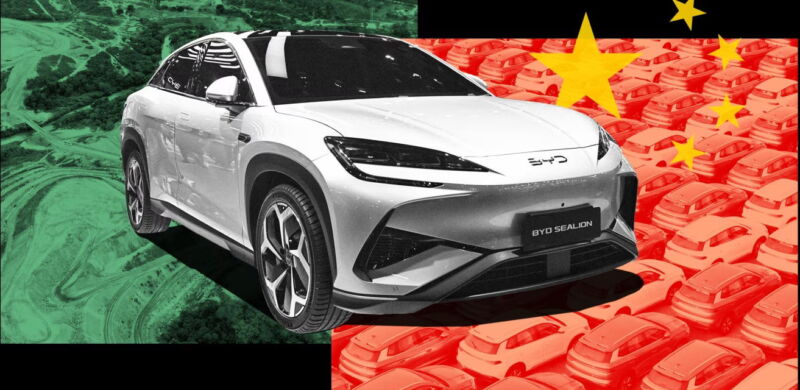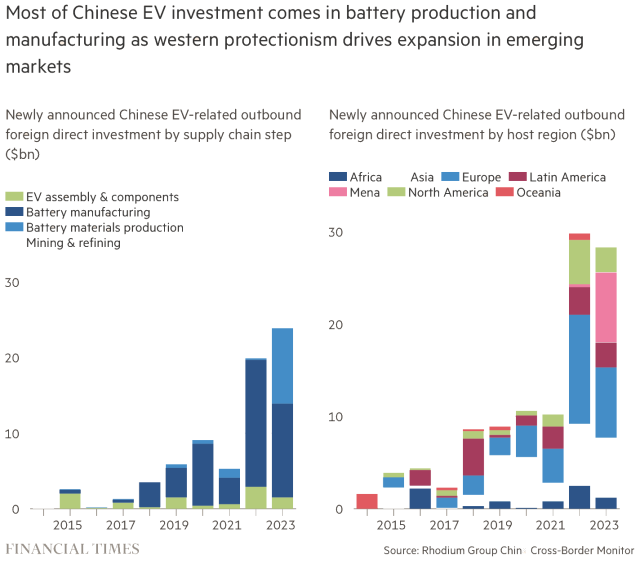
FT montage/Getty Images
The resurrection of a car plant in Brazil’s poor northeast stands as a symbol of China’s global advance—and the West’s retreat.
BYD, the Shenzhen-based conglomerate, has taken over an old Ford factory in Camaçari, which was abandoned by the American automaker nearly a century after Henry Ford first set up operations in Brazil.
When Luiz Inácio Lula da Silva, Brazil’s president, visited China last year, he met BYD’s billionaire founder and chair, Wang Chuanfu. After that meeting, BYD picked the country for its first carmaking hub outside of Asia.
Under a $1 billion-plus investment plan, BYD intends to start producing electric and hybrid automobiles this year at the site in Bahia state, which will also manufacture bus and truck chassis and process battery materials.
The new Brazil plant is no outlier—it falls into a wave of corporate Chinese investment in electric vehicle manufacturing supply chains in the world’s most important developing economies.

Financial Times
The inadvertent result of rising protectionism in the US and Europe could be to drive many emerging markets into China’s hands.
Last month, Joe Biden issued a new broadside against Beijing’s deep financial support of Chinese industry as he unveiled sweeping new tariffs on a range of cleantech products—most notably, a 100 percent tariff on electric vehicles. “It’s not competition. It’s cheating. And we’ve seen the damage here in America,” Biden said.
The measures were partly aimed at boosting Biden’s chances in his presidential battle with Donald Trump. But the tariffs, paired with rising restrictions on Chinese investment on American soil, will have an immense impact on the global auto market, in effect shutting China’s world-leading EV makers out of the world’s biggest economy.
The EU’s own anti-subsidy investigation into Chinese electric cars is expected to conclude next week as Brussels tries to protect European carmakers by stemming the flow of low-cost Chinese electric vehicles into the bloc.
Government officials, executives, and experts say that the series of new cleantech tariffs issued by Washington and Brussels are forcing China’s leading players to sharpen their focus on markets in the rest of the world.
This, they argue, will lead to Chinese dominance across the world’s most important emerging markets, including Southeast Asia, Latin America, and the Middle East and the remaining Western economies that are less protectionist than the US and Europe.
“That is the part that seems to be lost in this whole discussion of ‘can we raise some tariffs and slow down the Chinese advance.’ That’s only defending your homeland. That’s leaving everything else open,” says Bill Russo, the former head of Chrysler in Asia and founder of Automobility, a Shanghai consultancy.
“Those markets are in play and China is aggressively going after those markets.”
